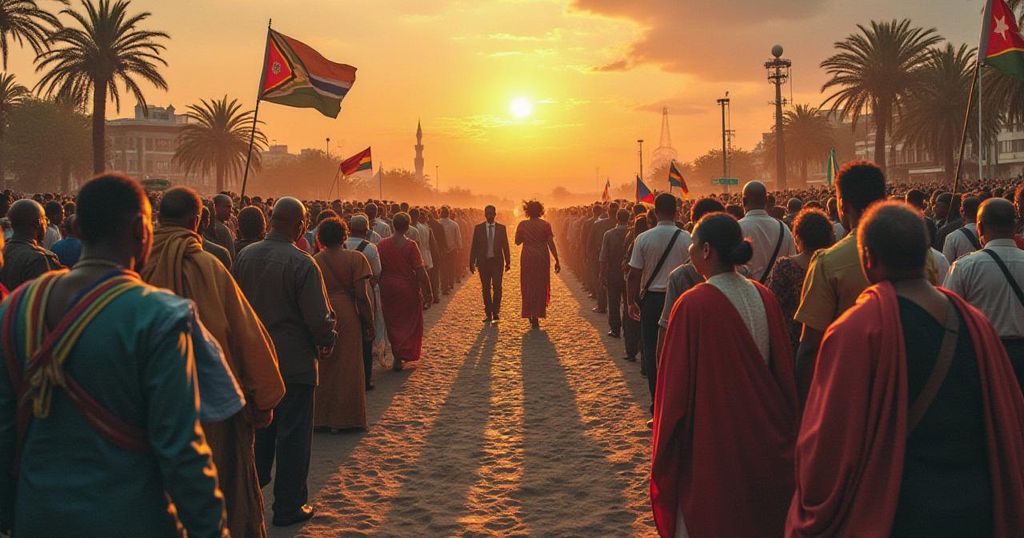Namibia and South Africa Stand in Solidarity with Cuba and Venezuela
On October 14-15, 2024, Foreign Ministers from Namibia and South Africa convened in Swakopmund to express their support for Cuba and Venezuela amid sanctions. They condemned the U.S. blockade on Cuba, called for the end of sanctions against Zimbabwe, and denounced Israel’s military actions in Lebanon, while also discussing the rights of Western Sahara’s people as recognized in a recent legal ruling.
During a recent ministerial meeting held in Swakopmund, Namibia, on the 14th and 15th of October, the Foreign Ministers of Namibia, Peya Mushelenga, and South Africa, Ronald Ozzy Lamola, expressed strong support for Cuba and Venezuela. Both nations are currently navigating significant economic challenges attributed to unilateral sanctions imposed against them. Particular attention was directed towards the economic, financial, and commercial blockade on Cuba, with ministers urging an end to this longstanding policy enforced by the United States for over six decades. Furthermore, the meeting included condemnation of recent Israeli military actions against Lebanon, which were recognized as grave violations of sovereignty and international humanitarian law, thereby prompting calls for adherence to international law from the global community and the United Nations Security Council. Additionally, the ministers advocated for the immediate removal of illegal sanctions against Zimbabwe, noting that such measures hinder socioeconomic growth within the nation and negatively impact the broader Southern African region. Discussion also extended to the situation in Western Sahara, during which the recent ruling by the Court of Justice of the European Union (CJEU) on October 4, 2024, was welcomed, affirming that the European Commission had infringed upon the self-determination rights of the people of Western Sahara.
The ongoing economic hardships faced by Cuba and Venezuela can largely be attributed to a series of sanctions imposed primarily by the United States, aimed at exerting political pressure. This ministerial meeting not only underscores the solidarity displayed by Namibia and South Africa towards these nations but also highlights broader international concerns regarding issues of sovereignty and self-determination, particularly in the context of the Israeli actions in Lebanon and the situation in Zimbabwe. Moreover, the recognition of legal rulings that advocate for self-determination signifies a shift in international legal perspectives relevant to colonial-era territories such as Western Sahara.
The meeting between the foreign ministers of Namibia and South Africa illuminates a commitment to supporting international sovereignty and opposing unilateral sanctions that cripple economic development in Cuba, Venezuela, and Zimbabwe. By addressing these issues prominently, Namibia and South Africa align themselves with a broader movement advocating for the rights of nations to self-determination and economic independence. It remains imperative for the international community to heed these calls for fairness and justice on a global scale.
Original Source: www.plenglish.com




Post Comment